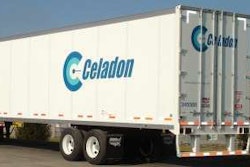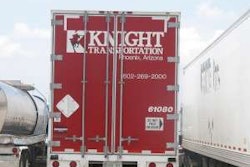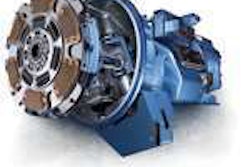As competition intensifies in the medium-duty engine market, quality and reliability remain the most important aspect of overall satisfaction, according to the J.D. Power and Associates 2011 U.S. Medium-Duty Truck Engine and Transmission Customer Satisfaction Study released Thursday, Oct. 27.
The study, now in its fourth year, measures customer perceptions of 2010 model-year Class 5-7 gasoline and diesel engines. It provides manufacturers with a comprehensive and objective measure of customer satisfaction with the products and related dealer service. Eight factors are measured to determine overall engine satisfaction: engine reliability/dependability; ease of access for service or maintenance; maintaining speed on grades; acceleration when fully loaded; electronic control module; vibration at idle; engine warranty; and average fuel economy.
The study finds that in 2011, owners are most satisfied with engine reliability and dependability, compared with all other factors. However, while the incidence of engine-related problems for medium-duty trucks remains stable from 2010, averaging 39 problems per 100 vehicles (PP100) in 2011, there has been an overall increase in these problems over time.
During the past five years, the average number of problems with medium-duty truck engines has increased by 13 PP100 among trucks that have been in service for 13 to 18 months. The study also finds that competition is intensifying within the medium-duty truck industry, with the gap between the highest- and lowest-ranked brands narrowing to 53 points in 2011 from 96 points in 2010.
“With truck owners placing such importance on the quality and reliability of their engines, providing a nearly problem-free experience is a key differentiator between brands,” says Brent Gruber, senior manager of the commercial vehicle practice at J.D. Power and Associates. “Whether manufacturers can reverse the steady increase in problem occurrence remains to be seen, particularly with the effects of the EPA’s 2010 mandates coming into play.”
The impact on engine quality and customer satisfaction of the most recent emissions standards revision that went into effect in 2010 will be reflected in the 2012 study. “Given the quality issues that arose from new emissions requirements in 2004 and 2007, the 2010 emissions standards will likely create another round of challenges for engine manufacturers,” says Gruber. “The manufacturers that best handle the integration of these new standards will have a distinct competitive advantage.” Impending emissions and fuel efficiency standards recently announced by the U.S. government will put additional pressure on engine manufacturers for the next several years, he says.
Hino Trucks engines rank highest in customer satisfaction for a fourth consecutive year with a score of 794 on a 1,000-point scale and perform particularly well in engine reliability and dependability and accessibility to components for service/maintenance. Cummins (763) follows Hino Trucks in the rankings.
The 2011 U.S. Medium-Duty Truck Engine and Transmission Customer Satisfaction Study is based on responses from 1,037 primary maintainers of one-year-old conventional cab medium-duty trucks. The study was fielded between June and August 2011.











